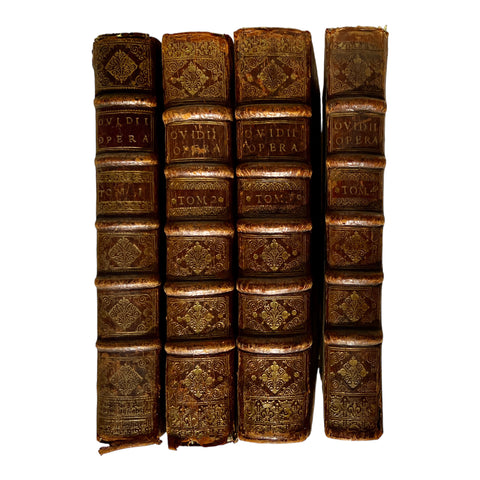
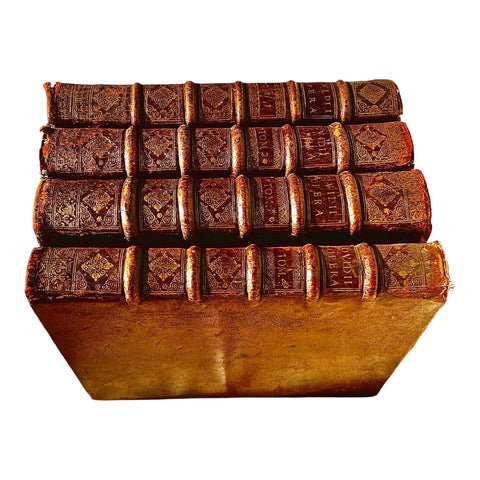



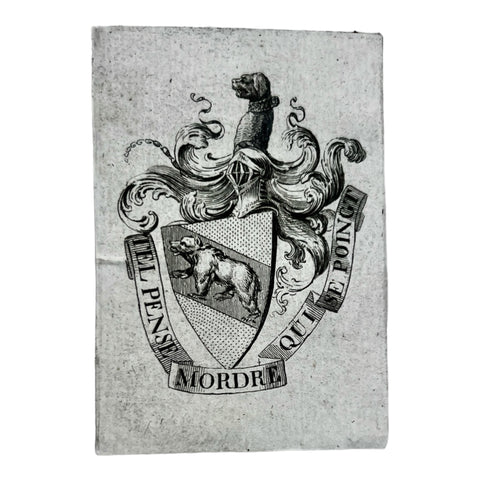
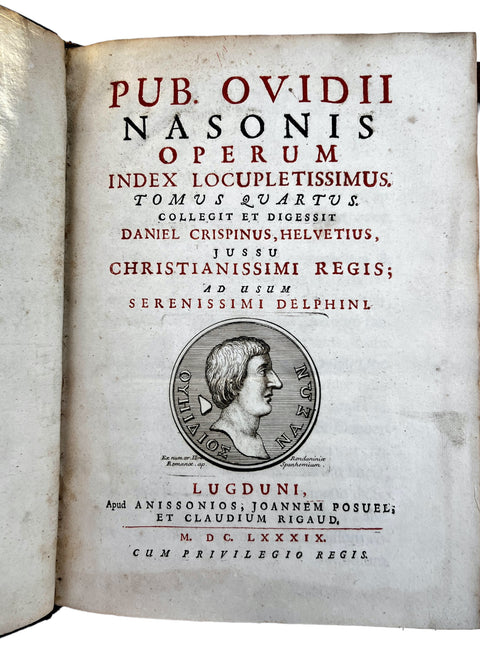
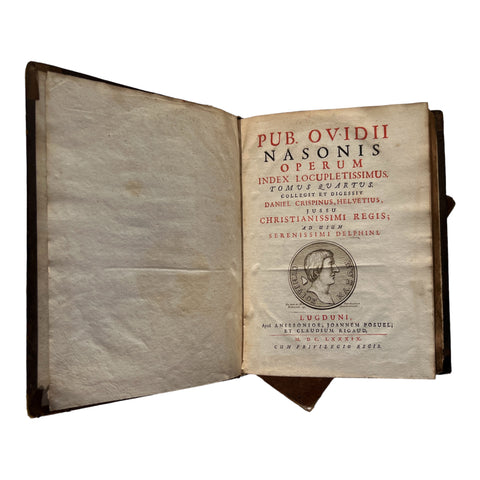
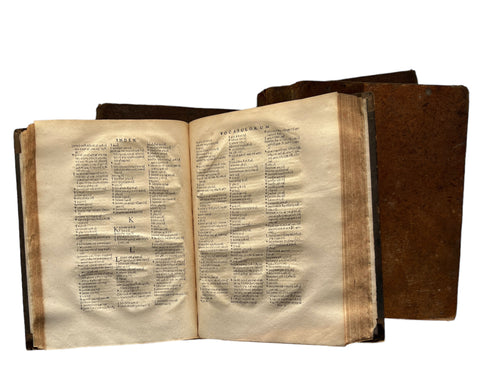
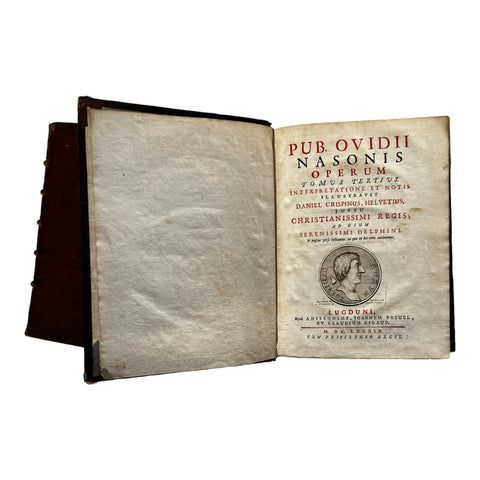
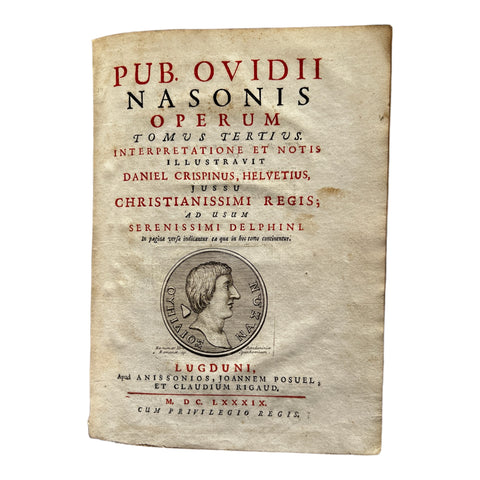
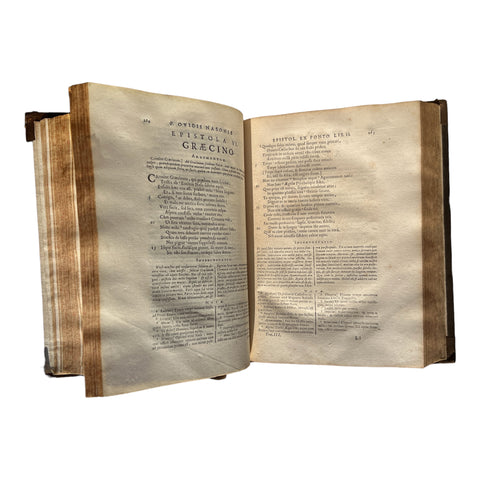
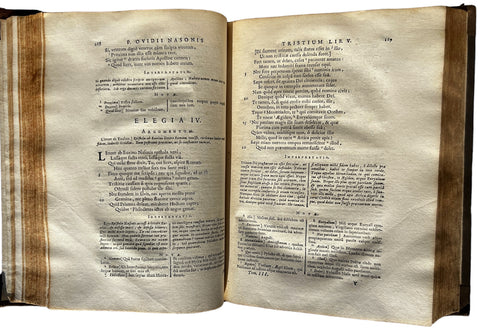
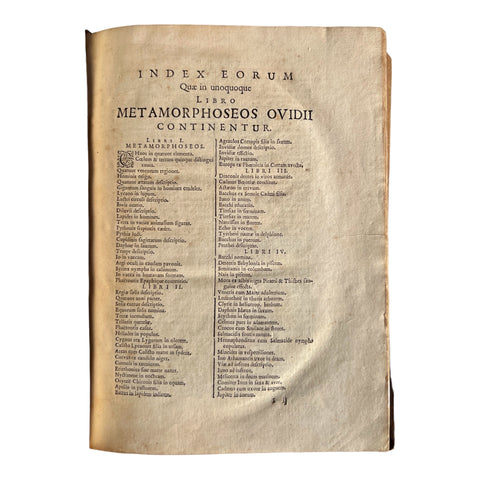
Publius Ovidii Nasonis Operum. 4-vol
Publius Ovidii Nasonis Operum. 4-vol. set (Complete)
Quarto
Original calf binding, with gold tooling on spines and gilt lettered leather titles.
Title pages in red and black lettering.
Engraved medallion portrait of Ovid on each title.
Engraved headpiece ornating the dedication to Louis, Grand Dauphin of France. Decorative woodcut initials. edition of the complete works of Ovid in four volumes.
- The first volume : Heroides ("The Heroines"); Amores ("The Loves"); Ars Amatoria ("The Art of Love"); Remedia Amoris ("The Cure for Love"); Medicamina Faciei Femineae ("Women's Facial Cosmetics"); Halieutica ("On Fishing"); Nux ("The Walnut Tree").
- The second volume : Metamorphoses ("Transformations"). - The third volume contains: Tristia ("Sorrows"); Epistulae ex Ponto ("Letters from the Black Sea"); Ibis ("The Ibis"); Fasti ("The Festivals").
- The fourth and last volume contains the Index.
Good condition
Publius Ovidius Naso (43 BC-AD 17/18), known as Ovid in the English-speaking world, was a Roman poet who lived during the reign of Augustus. He was a contemporary of the older Virgil and Horace, with whom he is often ranked as one of the three canonical poets of Latin literature. The Imperial scholar Quintilian considered him the last of the Latin love elegists. He enjoyed enormous popularity, but, in one of the mysteries of literary history, was sent by Augustus into exile in a remote province on the Black Sea, where he remained until his death. Ovid himself attributes his exile to carmen et error, "a poem and a mistake", but his discretion in discussing the causes has resulted in much speculation among scholars. The first major Roman poet to begin his career during the reign of Augustus, Ovid is today best known for the Metamorphoses, a 15-book continuous mythological narrative written in the meter of epic, and for works in elegiac couplets such as Ars Amatoria ("The Art of Love") and Fasti. His poetry was much imitated during Late Antiquity and the Middle Ages, and greatly influenced Western art and literature. The Metamorphoses remains one of the most important sources of classical mythology. (From Wikipedia).